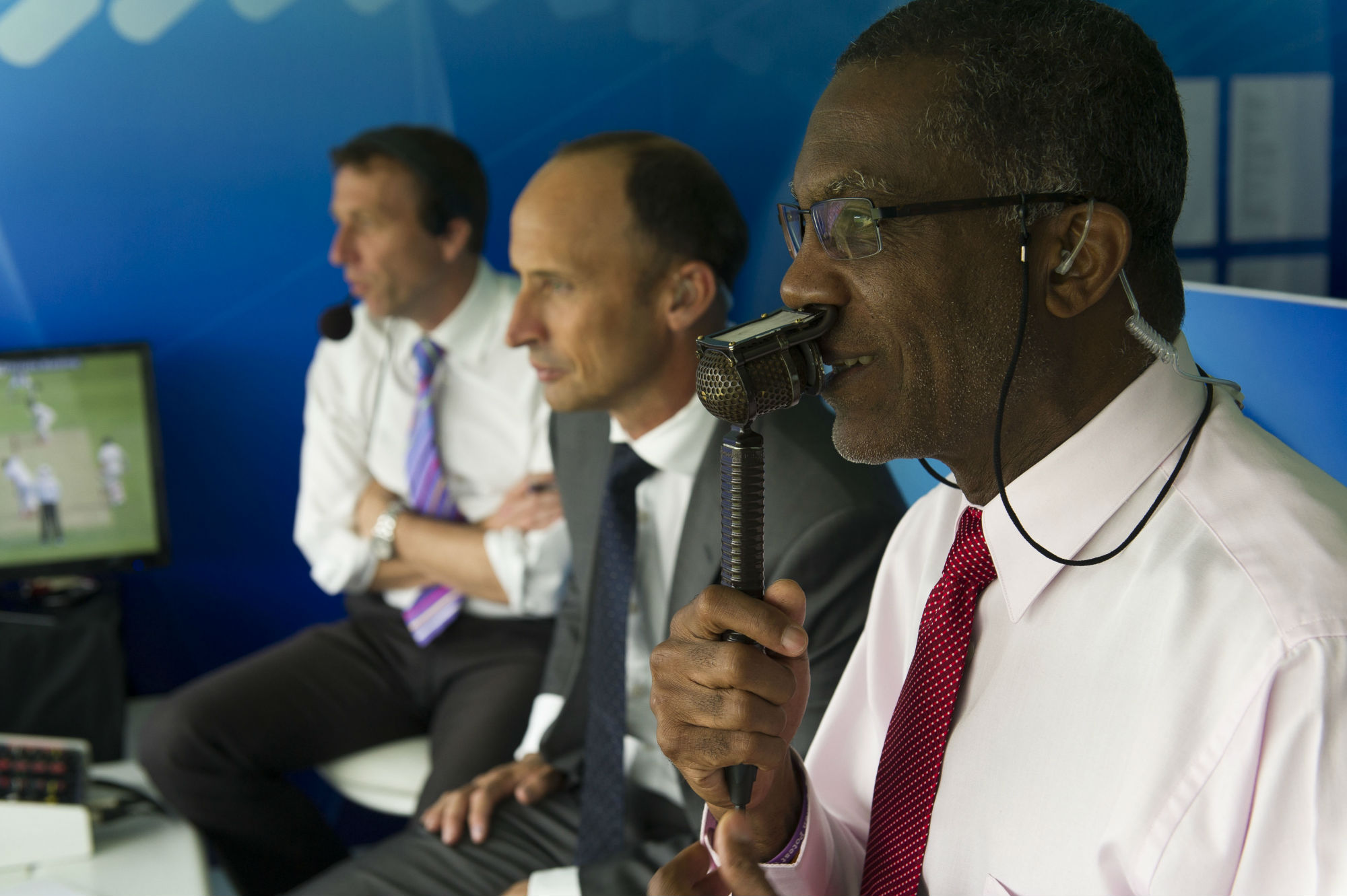22 men with clubs and Neanderthal facial hair, fighting an ancient, ritualised turf war over a symbolic, cremated token… No sooner did you think the latest series of Game of Thrones had finished than a bunch of feisty blokes from somewhere far scarier and more violent than Westeros pitch up and start throwing heavy objects around. The Ashes, one of sport’s most venerable international competitions, started again today, and since it’s now big business, we have a range of viewing choices. And that, we’re always told, is good for us.
Sky Sports paid an estimated £280m for the rights for live international cricket, 2013-17, and with that sort of money at stake, you don’t want the second XI presenting your show. Their studio is stuffed with captains and other veterans mentioned in dispatches from the past few decades’ competitions. Many of these presenters, especially David Gower, Sir Ian Botham and Australian bowling genius Shane Warne, used to have a reputation for varieties of hell-raising, but dress them in chinos and a club tie, and sit them together on a sofa, and the result is slightly soporific.
With Sky, you definitely enter the Bloke Zone. This equates, in sport as in politics, to unhealthy levels of mutually reinforcing egotism. The sound of alpha egos being pampered - think a cross between a purr and the clucking of a well-fed cockerel - doesn’t make especially lively, anecdote-filled telly. Sometimes a former captain’s expertise yields helpful insight (generally Michael Atherton is the most perceptive, with Michael Holding - pictured below with Atherton and Nasser Hussain - refreshingly crisp and headmasterly), but it doesn’t always generate a great atmosphere, or sense of struggle, listening to people who usually won. Some of the best communicators, such as cricket writer Ed Smith, or BBC commentator Henry Blofeld, were less convincing players, but would be much more engaging to be stuck in a lift with.
 Where money does undoubtedly help is in the preparation of relevant background information, and what really impresses with Sky’s coverage is the depth of supporting clips and animations. Points commentators make about a player’s history or style are instantly illustrated with clips from previous games, and controversial umpiring decisions viewed from every conceivable angle.
Where money does undoubtedly help is in the preparation of relevant background information, and what really impresses with Sky’s coverage is the depth of supporting clips and animations. Points commentators make about a player’s history or style are instantly illustrated with clips from previous games, and controversial umpiring decisions viewed from every conceivable angle.
Channel 5’s 7pm highlights show necessarily has a much breezier, pithier approach, helped by the quintessentially Yorkshire views of commentators Geoffrey Boycott and Michael Vaughan. The visuals are as good, though not, given the time constraints, as detailed as Sky’s. Not to be outdone, Sky also has an hour’s highlights programme at 8pm, followed by an hour’s round-table discussion called The Verdict. This last I found the most enjoyable of their output, with a more spirited exchange of views, and the opportunity for more anecdote and analysis.
In the innocent days of the 1980s, a fat man with a walrus moustache would approach England batsmen at the crease and say something over-familiar about their sister
Meanwhile BBC Radio’s Test Match Special still, despite the lack of infographics, offers the most atmospheric commentary, and here, perhaps the greatest innovation of all has recently taken place. Whisper it, but women (women!) have been promoted from making cakes for Brian Johnston to actually commenting on the game. Not only have the pretty little things demonstrated a thorough grasp of the LBW laws - who knew? - but former England players Ebony Rainford-Brent and Isa Guha have also brought a refreshing lack of ego and sense of humour.
Frankly, it’s a relief the series has started. These days, the build-up is as much fun as the Labour Party Conference, circa 2001, as Australian players recite stale, pre-scripted “banter”, usually a provocative remark about England’s bête noire Kevin Pietersen, to “build tension”. In the innocent days of the 1980s, this was achieved much more effectively, when a fat man with a walrus moustache, as Australian cricketers generally were then, would approach England batsmen at the crease and say something over-familiar about their sister. These were the legendary athletes who ran a competition to see who could drink the most beer on the flight to UK, with the record - 52 cans - set in 1989 by the portly Aussie icon David Boon. How he defeated the swag-bellied, ‘tache-toting Merv Hughes remains a mystery. (These days all that’s left of this redoubtable approach to sportsmanship is the moustache.) Now where is this lively pair when Sky needs some earthy insight?















Add comment